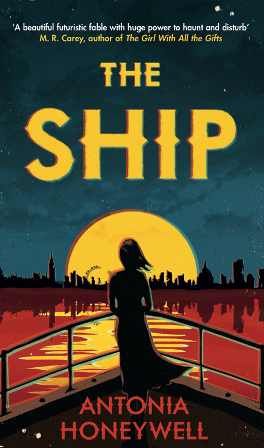
You’re an aspiring writer, and the world is conspiring against you. First, you had to move heaven and earth, as well juggling as your children/parents/studies/day job to write your novel in the first place. Maybe it’s your first, maybe you’ve notched up two or three or more. Now you’re trying to find an agent, or your agent is trying to find a publisher. But you haven’t given up. You know the drill. Cinderella gets her prince by working hard and being kind to people. Arthur sloughs off the crowd’s ridicule, pulls the sword from the stone and is proclaimed king. An aspiring writer leaves their manuscript on a train, where it’s discovered and read by a great agent, or an editor, who is blown away and tracks down the unsuspecting author waving a contract. A manuscript is pulled from the slush pile and sells for seven figures. There is a benevolent force in fairy tales that makes sure that the good are rewarded and the bad are punished. Cinderella lives happily ever after while birds peck at her sisters’ eyes. Good writing will find a publisher.
It does happen. First novels are bought for extraordinary sums; effective marketing gets the book into readers’ hands, readers respond to it and (cue sparkle of stars) that’s a career. The day job’s given up, you travel, you have that which is more prized than either – time to write. It’s a story with all the magic of the lottery. It could be you. It gets you through sweeping out the fireplace, anyway. And because life is composed of rather more fireplace sweeping than most people like, fairy tales assume a greater portion of our thoughts than is healthy. We lap them up and are supplied with more. But the supply of fairy godmothers - and indeed of princes – is a limited one, and real life fairy tales are rarely cut from whole cloth.
The trouble with publication fairy tales is not that they sometimes come true (although that doesn’t help). It’s that they encourage two responses, both equally damaging. One is jealousy. You stand in rags staring at Cinderella, knowing that the glass slippers would have fitted you if only you’d had a chance to try them on. I could have sold half a million copies if I’d had a book tour/ tube poster/ prize nomination. The other is faith in predestination. If you’re meant to be a princess, the fairy godmother will find you. If my writing is good enough, the publishers will come. The stories we relax into are the ones in which we feel safe. We know our baddies from our goodies; gnarled barricades of thorns and malevolent naysayers only add to the excitement. The more impossible the task, the sweeter the prospect of sending birds to peck out the eyes of the villains who held us back, or heating up iron shoes for them to dance in when our happy ever after arrives.
But writing isn’t safe. There is no final destination. Tales of lucky breaks mask years and decades of perseverance. And even when they come – or if you are the one in a million who does, by luck or skill or judgement, fall into one – be warned. The slippers are pretty, but the prince snores. His romantic reluctance to support Cinderella’s explorations of alternative footwear leaves her crippled with bunions. Real relationships are in a process of constant evolution. There’s give and there’s take, there’s doubt, there’s betrayal and disappointment. They’re messy and complicated, and the moments of pure unadulterated joy are all the more worth pursuing for the heartache that’s gone before and will come again. And writing is a real relationship. It’s a constant process of finding out what works for you. Of feeding and nurturing your words with the devotion of Snow White whilst simultaneously culling them with all the brutality of Bluebeard. It’s not about enjoying the journey – it’s about realizing that there is no fixed destination. Whether through acceptance or rejection, the landscape changes. There’ll be times when the view is clear and glorious and full of flowers, and times when you can’t see the path for the granite boulders. But whether, as a writer, you’re aspiring, published, once-published or never out of print, it’s same path. Throw away the distorting lenses of fairytales. Let Cinderella find her own earplugs. You’re a writer, and you have work to do.
Antonia Honeywell is a teacher, novelist and mother of four. She studied English at Manchester University, and worked in the Education Department of the Natural History Museum (London) before pursuing a teaching career. Her first novel, The Ship, depicts a society in collapse and examines the motives and actions of the people in power and the people who challenge them. She is a founder member of The Prime Writers, a group of authors whose debuts were published over the age of 40. Find out more on her website and follow her on Twitter here.
Comments